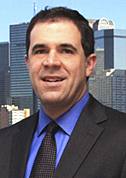© 2012 The Texas Lawbook.
By Mark Curriden
Senior Writer for The Texas Lawbook
The Texas legal system has long been one of the most hostile states toward foreign lawyers practicing law, handling cases or advising clients in the US, but that may soon change.
The Texas Supreme Court is considering a proposal that, if adopted, would make Texas second only to New York in welcoming lawyers educated and trained outside the US to practice law – either permanently or on a single case basis – in the state.
Reforming the rules of admission to the state bar to make them more friendly to foreign lawyers would make Texas-based law firms more competitive with their counterparts in New York and London and improve Texas’ position in the global economy, according to a 53-page report issued this week by the Texas Supreme Court Task Force on International Law Practice.
“The proposed amendments are intended to reflect changing market realities facing the state and thereby offer law schools, law firms and clients based in Texas greater access to international resources,” the 14-member task force stated in its findings.
Specifically, the task force recommends the elimination of requirements that candidates for the Texas Bar be US citizens, US Nationals or aliens lawfully admitted for permanent residency. The long-time mandate that applicants hold a valid and active law licenses would be dropped because some foreign jurisdictions don’t even having licensing procedures.
The Texas Supreme Court is expected to request public comments about the proposed changes this spring and then vote on whether to adopt the rule amendments later this year.

The proposed changes have wide support among the state’s largest law firms and the general counsels of global corporations based in Texas, according to Haynes and Boone partner Larry Pascal, who chaired the task force.
“More and more Texas law firms are competing head to head against international lawyers and these reforms will be good for the bar here in Texas,” says Pascal. “This rule change is good for lawyers in Texas and it’s good for business in Texas.”
The task force, which was created in 2009 by Chief Justice Wallace Jefferson, points out that more than 4,000 foreign business lawyers from Vancouver to London and Beijing to Dubai sit for the New York State Bar examination. By contrast, less than 20 do so annually in Texas.
Leland de la Garza, a business litigator and partner at Shackelford, Melton & McKinley, says that foreign lawyers offer insights into and connections with global companies that could be potential investment partners with Texas businesses.
De la Garza, who is vice chair of the task force, says that working with foreign lawyers gives Texas lawyers an advantage in a legal world where international arbitrations and cross-border litigation is becoming increasingly prevalent.
“The bar admission rules have been burdensome and onerous and this proposal fixes that,” he says.
Jill Atha, a corporate transactional lawyer at ExxonMobil who served on the task force, says the changes allow global corporations to move their foreign-based lawyers to Texas more easily and allows them to have the same “client-attorney and privilege protections” that lawyers need to practice.
To view the entire report, please see: www.supreme.courts.state.tx.us/ilptf/pdf/finalreport.pdf.
© 2012 The Texas Lawbook. Content of The Texas Lawbook is controlled and protected by specific licensing agreements with our subscribers and under federal copyright laws. Any distribution of this content without the consent of The Texas Lawbook is prohibited.
